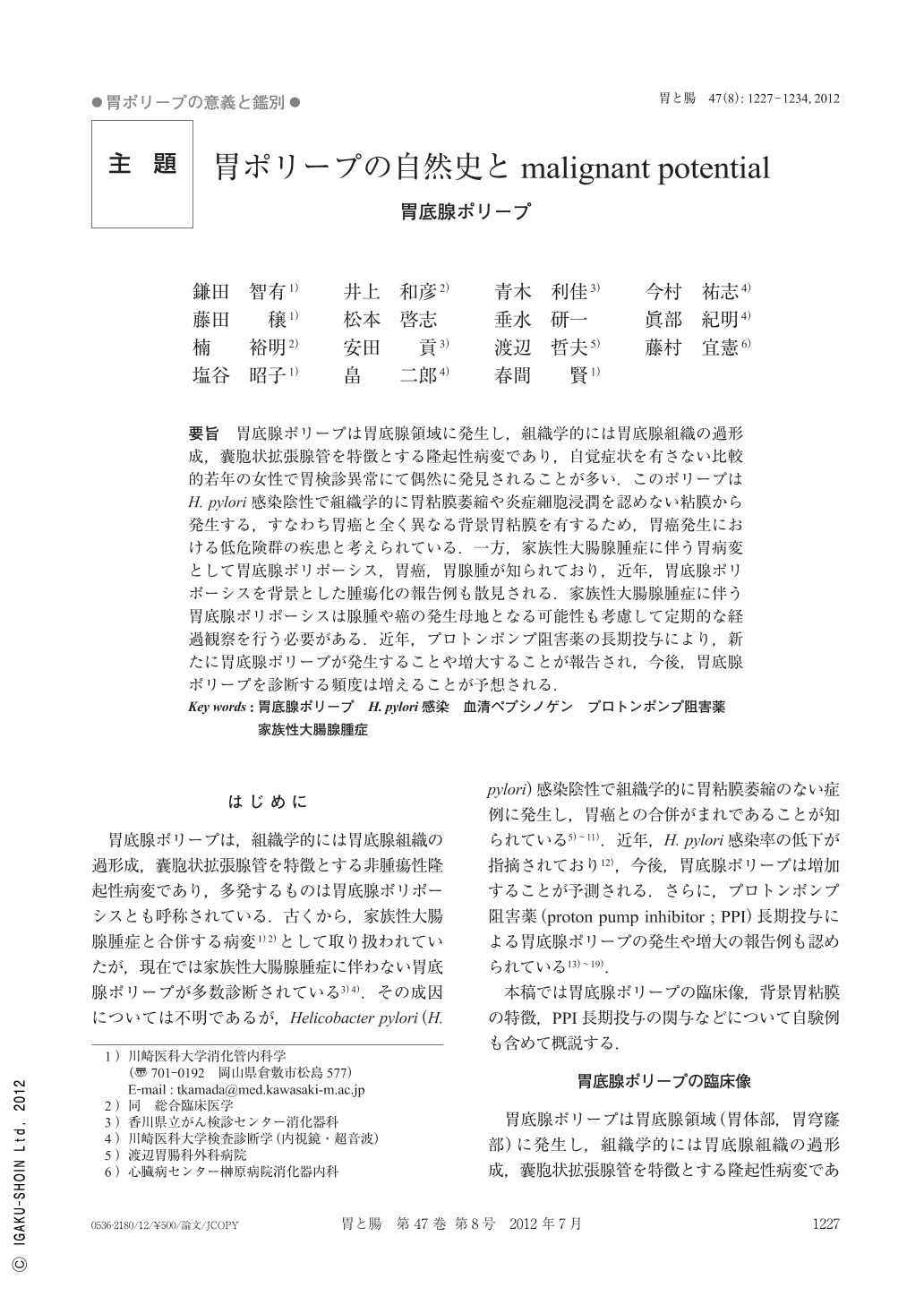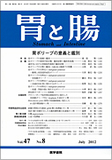Japanese
English
- 有料閲覧
- Abstract 文献概要
- 1ページ目 Look Inside
- 参考文献 Reference
- サイト内被引用 Cited by
要旨 胃底腺ポリープは胃底腺領域に発生し,組織学的には胃底腺組織の過形成,囊胞状拡張腺管を特徴とする隆起性病変であり,自覚症状を有さない比較的若年の女性で胃検診異常にて偶然に発見されることが多い.このポリープはH. pylori感染陰性で組織学的に胃粘膜萎縮や炎症細胞浸潤を認めない粘膜から発生する,すなわち胃癌と全く異なる背景胃粘膜を有するため,胃癌発生における低危険群の疾患と考えられている.一方,家族性大腸腺腫症に伴う胃病変として胃底腺ポリポーシス,胃癌,胃腺腫が知られており,近年,胃底腺ポリポーシスを背景とした腫瘍化の報告例も散見される.家族性大腸腺腫症に伴う胃底腺ポリポーシスは腺腫や癌の発生母地となる可能性も考慮して定期的な経過観察を行う必要がある.近年,プロトンポンプ阻害薬の長期投与により,新たに胃底腺ポリープが発生することや増大することが報告され,今後,胃底腺ポリープを診断する頻度は増えることが予想される.
Gastric FGP(fundic gland polyp)was initially recognized as a one of the gastric lesions in patients with FAP(familial adenomatous polyposis). However, sporadic FGP without FAP has been frequently diagnosed. The histological feature of FGP is hyperplasia of the fundic glands with microcysts and cystic dilatation of the glands. FGPs can usually arise from the normal fundic mucosa without atrophic gastritis, and H. pylori infection. The background mucosa of FGPs is quite different from that of gastric cancer with atrophic gastritis and H. pylori infection. FGPs without FAP are recognized as a low risk group for gastric cancer.
Additionally, some reports showed cases of tumorigenesis associated with FGPs in patients with FAP. Therefore, it is important to observe carefully the FAP patients by upper gastrointestinal endoscopy.
Recently, an increase risk of FGPs has been reported with long-term use of PPI(proton pump inhibitor)therapy. It is suggested that the long-term administration of PPI inhibits the secretion of gastric acids, and provokes hyperplastic cystic changes in the fundic glands in H. pylori-negative patients.

Copyright © 2012, Igaku-Shoin Ltd. All rights reserved.


